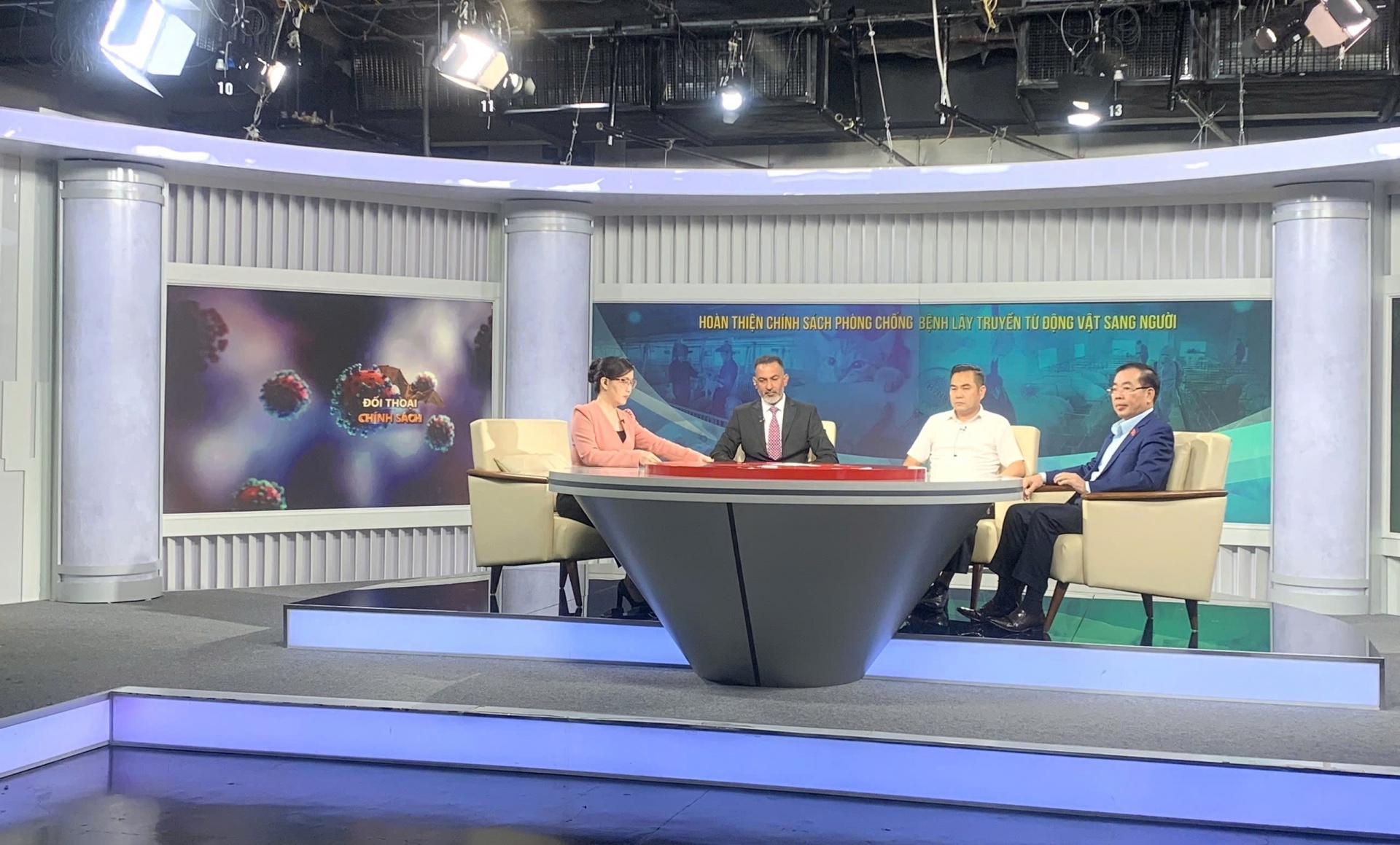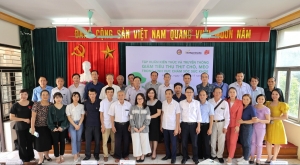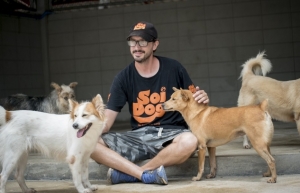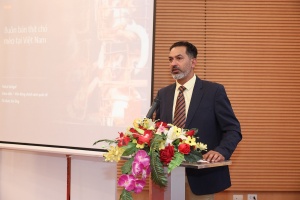INTERNATIONAL INVESTMENT
AND PORTAL
Vietnam National Assembly Television (VNATV) broadcast a groundbreaking policy dialogue on December 3 addressing the urgent need to eliminate Vietnam's dog and cat meat trade.

The programme brought together key national stakeholders and international experts to examine policy solutions for this pressing issue while also considering its implications for public health, including rabies prevention.
"Addressing the critical issue of dog and cat meat trade requires comprehensive policy solutions," said Nguyen Quang Huan, National Assembly (NA) delegate and member of the NA's Committee on Science, Technology and Environment. "While Vietnam currently lacks specific legislation prohibiting these practices, waiting for a comprehensive new law would take considerable time. Instead of waiting, we should focus on implementing a government decree specifically targeting the trade, transportation and slaughter of dogs and cats, which could then be effectively enforced nationwide. Hanoi should take the lead in piloting this initiative."
The dialogue examined several critical dimensions of the issue, including the economic impact on Vietnam's tourism sector, particularly in major destinations such as Hanoi and Ho Chi Minh City. The discussion explored successful policy implementation case studies from other Asian nations, including South Korea's recent systematic approach to ending the dog meat trade through legislative reform.
Hanoi's proactive stance on these issues has recently garnered international attention.
Ngo Dinh Loat, deputy head of the Sub-Department of Animal Husbandry, Fisheries, and Veterinary Medicine in Hanoi, said, "Recently, Hanoi has paid special attention to control rabies and the trade, transport and slaughter of dogs and cats, implementing comprehensive directives and issuing multiple documents to guide departments, sectors, and district authorities in rabies prevention. A key document is Plan No.105/KH-UBND from 2022, which regards the National Target Programme for Rabies Prevention and Control in the city until the end of the decade. This plan details objectives, solutions, resource allocation, funding, and specific responsibilities for each sector and level of government."
The Soi Dog Foundation, an international animal welfare organisation, has become a key partner in this initiative. "This trade poses significant risks to public health and animal welfare," said Rahul Sehgal, international communications director at Soi Dog Foundation. "Hanoi's innovative approach shows how targeted policy reform can transform traditional practices. We are committed to supporting the complete elimination of this trade through comprehensive educational campaigns, law enforcement training, and assistance in developing alternative livelihoods for those currently involved in the industry".
By reaching millions of Vietnamese households through VNATV, the dialogue is expected to spark unprecedented public discourse on ending the dog and cat meat trade. The broadcast will serve as a vital educational tool for local authorities and communities, helping to build consensus around new policy initiatives while fostering a more profound understanding of the need for reform.
 Associations work to stamp out use of dog and cat meat
Associations work to stamp out use of dog and cat meat The Ha Nam Traditional Medicine Association, Soi Dog International Foundation, and Social and Behaviour Change Science Agency Intelligentmedia brought together 30 provincial Traditional Medicine (TM) practitioners to provide coaching on November 10 on the negative impact of the use of dog and cat meat for public health.
 Banning dog and cat meat services is essential to stop consumer demand
Banning dog and cat meat services is essential to stop consumer demand Restaurant owners have raised their voices to protest dog and cat meat services, hoping to cut consumer demand.
 Hanoi takes action to eliminate dog and cat meat trade in face of rabies outbreaks
Hanoi takes action to eliminate dog and cat meat trade in face of rabies outbreaks Hanoi is implementing measures to eradicate the dog and cat meat trade across the city as the threat of rabies looms large.
By Vy Bui



















